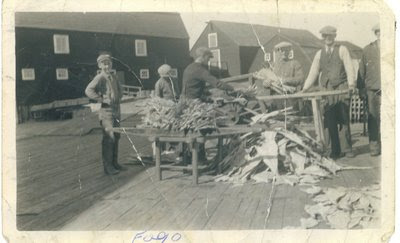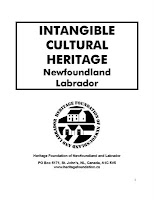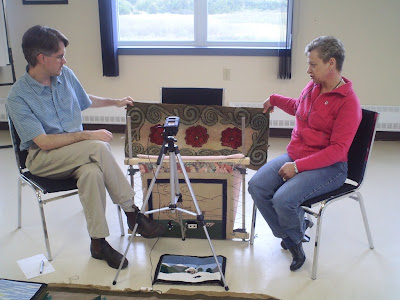Travelling storyteller hopes to spread the power of the spoken word
CORNER BROOKCORY HURLEY Transcontinental MediaListening to internationally known storyteller, Dan Yashinsky, it's not difficult to tell his audience in western Newfoundland was captive - in both senses of the word.
Whether it is the students who he admitted were "captives" to his speaking engagements at the various schools along his tour or seniors whose attention he grabbed of their own accord, he said people appeared sincerely interested in his folk tales and stories so far this week.
"I really want them to feel that the spoken word is important and that you can't double-click on wisdom, you have to learn it by listening," Yashinsky told The Western Star Tuesday. "Here, in Newfoundland, you have a strong oral culture, but in many parts of the world it's eroded. An old woman told me something (Monday) night that was very moving. She said she used to think she grew up poor, but she looks back now and realizes they were rich because they had time - time to listen, time to tell each other stories, time to talk.
"Nowadays, she said, the kids have a lot of material possessions, but they are very poor when it comes to culture and stories. I have to agree with that. The irony is, nowadays, we can communicate in so many different ways, but we have very little to say to each other."
The Toronto-based storyteller and author hopes people realize the power of the spoken word, yet also recognize the enjoyment it can bring.
"One of the great things about the tour is I am talking to a lot of high school kids," Yashinsky said. "I really have enjoyed that because, a lot of times, they tend to think of storytelling as something for little kids. Then, when they hear the kind of stories I try to tell, they realize they are for adults. In fact, I've told a couple (of stories) that are slightly risqué, tell you the truth."
Of course, he wasn't just interested in having people listen. Yashinsky wanted to expand his knowledge of the world's cultures and traditions by hearing local stories, too.
"Everywhere I went I felt I was part of the community, that they were very accepting and very appreciative," Yashinsky said. "Many of them would come up afterwards to share riddles and stories with me, too.
"Some people collect coins, some collect stamps, some people collect ring tones. Whatever you collect, I collect words - stories, sayings and expressions. I think the nature of a storyteller is to be a listener as much as a teller," he said. "Everywhere I have gone, I've been listening and hearing stories ... certainly, it's a culture that prizes stories here."He has also learned a bit while testing the local trout-fishing waters, he said. Today, Yashinsky will be in Lourdes and Cape St. George.
Reprinted from
www.thetelegram.com 11/06/08







